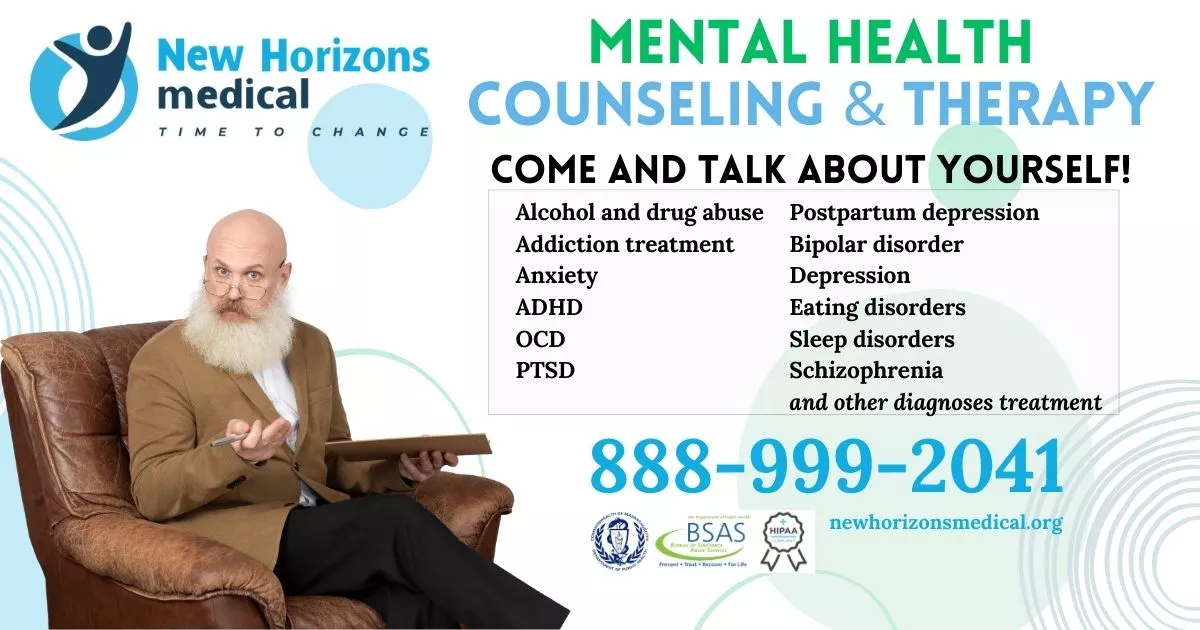The Relevance of Mental Health: a Deep Study Therapy, Therapy, and Their Advantages
Psychological health substantially forms specific wellness, impacting ideas, emotions, and actions. Therapy and therapy function as necessary methods for recovery and individual growth. They provide organized support, assisting people browse life's challenges. Yet, lots of remain not aware of the specific sorts of therapy readily available and their unique benefits. Recognizing these facets is vital for anyone considering professional psychological wellness support. What adheres to may light up courses to strength and gratification that many neglect.
Understanding Mental Wellness and Its Effect
Mental wellness is commonly forgotten, it plays a vital function in overall well-being and daily functioning - Mental Health Resources. It includes psychological, psychological, and social aspects that affect exactly how people assume, really feel, and act. A person's psychological health directly influences their capacity to manage stress and anxiety, connect to others, and choose. Poor mental health can cause numerous issues, including anxiety, clinical depression, and problem in preserving connections, every one of which can impede expert and individual growth.Furthermore, psychological wellness has far-ranging implications for physical wellness. Persistent stress and neglected mental problems can add to numerous physical disorders, such as cardiovascular disease and compromised immune actions. Alternatively, favorable psychological wellness promotes strength, enabling individuals to handle life's challenges effectively. Recognizing psychological health's significance is important for cultivating supportive environments that advertise emotional well-being, therefore improving the quality of life for individuals and neighborhoods alike
The Different Types of Counseling and Therapy
In the domain of mental wellness, various counseling and therapy types provide to diverse requirements. Specific counseling techniques concentrate on individual concerns via one-on-one sessions, while group treatment dynamics foster shared experiences and assistance amongst participants. Recognizing these modalities is important for picking the proper intervention for different obstacles.
Specific Therapy Strategies
Numerous specific counseling strategies exist, each created to address details mental wellness worries and satisfy varying customer requirements. Cognitive Behavior Treatment (CBT) focuses on determining and altering adverse idea patterns, while Psychodynamic Therapy checks out unconscious processes and previous experiences. Humanistic Treatment highlights individual development and self-actualization, cultivating a supportive atmosphere. Interpersonal Therapy (IPT) targets partnership issues and communication patterns to enhance emotional health. In addition, Approval and Dedication Treatment (ACT) encourages clients to approve their thoughts and sensations while committing to personal worths. Each method uses unique strategies and philosophies, enabling practitioners to customize their techniques to the person, therefore boosting the restorative experience and advertising mental wellness healing.
Group Therapy Characteristics
Group treatment characteristics incorporate various healing approaches that utilize the power of shared experiences and interpersonal connections. This form of treatment commonly consists of varied teams, promoting a risk-free atmosphere for individuals to express feelings and ideas. Trick kinds of group therapy include assistance groups, which offer emotional support; process-oriented groups, concentrating on interpersonal communications; and psychoeducational teams, targeted at giving understanding about mental health problems. The characteristics within these groups can improve self-awareness, as participants usually mirror on their behaviors in regard to others. In addition, group treatment promotes a feeling of belonging, minimizing sensations of isolation. Through shared narratives and collective problem-solving, participants can develop dealing approaches and gain understandings, eventually adding to specific growth and healing.
The Role of Counseling in Mental Wellness
Therapy plays a crucial duty in psychological wellness by providing various strategies customized to individual needs. These methods provide expert guidance that can cause significant renovations in psychological well-being. Recognizing the various types of counseling can assist individuals make notified decisions about their psychological healthcare.

Kinds Of Counseling Strategies
While various therapy methods exist, each deals one-of-a-kind methodologies and insights right into psychological wellness therapy - Couples Therapy. Amongst one of the most noticeable are cognitive-behavioral therapy (CBT), which focuses on changing negative thought patterns; psychodynamic treatment, which explores unconscious procedures and youth experiences; and humanistic approaches, highlighting personal development and self-actualization. In addition, solution-focused short treatment focuses on locating options in today rather than delving right into troubles. Team treatment promotes area and shared experiences, while family therapy addresses relational characteristics within familial structures. Each approach satisfies various requirements, aligning with specific preferences, concerns, and therapeutic goals. Comprehending these methods aids clients make notified choices concerning their mental wellness trip and promotes efficient therapy customized to their one-of-a-kind circumstances
Benefits of Specialist Guidance
Countless people profit from professional guidance in handling their mental health difficulties. Counseling uses a risk-free area for clients to discover their ideas and feelings without judgment. This restorative setting fosters self-awareness, permitting people to recognize patterns in their habits and establish healthier coping techniques. Specialist support also gives accessibility to evidence-based methods that can alleviate signs and symptoms of anxiety, clinical depression, and various other psychological health issues. Moreover, counselors can assist in establishing reasonable goals and use assistance in accomplishing them, boosting general wellness. The collective connection in between therapist and client is necessary, as it promotes liability and encourages individual development. Ultimately, specialist support plays an important role in steering mental health journeys, leading to enhanced emotional durability and life contentment.
Benefits of Treatment: Recovery and Growth

How to Choose the Right Specialist or Therapist
Just how can one browse the frequently overwhelming process of selecting the right therapist or counselor? Determining individual needs is important; individuals ought to consider their particular problems, whether depression, relationship, or anxiousness difficulties. It is helpful to research various healing strategies, such as cognitive-behavioral treatment or psychodynamic therapy, to discover an ideal match.Next, potential customers should seek recommendations from trusted sources or use on the internet directories. It is vital to review therapists' credentials, including their education, licensing, and areas of field of expertise. Setting up first consultations can aid evaluate compatibility, allowing people to analyze communication styles and personal comfort.Finally, logistical factors, such as place, availability, and charges, must likewise be thought about. By attentively evaluating these elements, one can make an educated choice, eventually fostering a therapeutic partnership that sustains mental health and individual growth.
Getting Rid Of Stigma: Embracing Mental Wellness Assistance
While social mindsets towards psychological health have actually progressed, stigma still presents a substantial barrier for numerous looking for support. This stigma frequently materializes as mistaken beliefs surrounding mental disease, leading people to feel shame or worry regarding their struggles. Many individuals wait to seek therapy or treatment because of fret about being judged or labeled. Overcoming this stigma is essential for fostering an encouraging environment where individuals can honestly discuss their psychological health needs.Communities and organizations play a crucial duty in this makeover by advertising understanding and education regarding mental wellness issues. Campaigns that highlight personal stories can humanize these experiences, encouraging others to seek help without fear. As acceptance grows, people might really feel much more equipped to welcome mental health and wellness assistance, identifying it as an important facet of total well-being. By taking apart stigma, society can cultivate a culture of understanding, empathy, and positive mental healthcare.
Approaches for Maintaining Mental Health Beyond Treatment
Therapy supplies important assistance, keeping mental health outside of sessions is equally essential. People can carry out a number of strategies their website to maintain their mental health and wellness. Routine physical activity plays a necessary duty, as exercise promotes the launch of endorphins, which improve state of mind. Additionally, a well balanced diet regimen rich in nutrients can considerably impact emotional security and power levels.Practicing mindfulness and reflection helps people manage stress and anxiety and establish better self-awareness. Establishing a constant sleep regimen is also fundamental, as quality remainder is critical for cognitive feature and psychological regulation.Engaging in social activities cultivates connection and reduces sensations of isolation. Seeking hobbies or interests can provide an innovative outlet and boost self-confidence. Ultimately, setting sensible goals and exercising self-compassion allows individuals to cultivate resilience. By incorporating these methods right into life, individuals can effectively sustain their psychological well-being beyond treatment sessions.
Often Asked Concerns

How Can I Tell if I Need Treatment?

Establishing the demand for therapy often entails acknowledging relentless feelings of unhappiness, anxiousness, or frustrating tension. If everyday operating becomes challenging or coping devices stop working, looking for specialist support may be a helpful advance.
What Should I Expect in My Initial Treatment Session?
In the initial treatment session, people can expect an introduction, discussion of their reasons for looking for help, and an overview of the therapist's strategy, creating a structure for future discussions and developing comfort in the healing area.
Are Online Treatment Procedure as Effective as In-Person Ones?
Research study suggests that online treatment sessions can be as effective as in-person ones. Elements such as the therapist's credentials, client engagement, and the restorative relationship substantially influence end results, no matter the medium utilized.
Can Therapy Aid With Connection Issues?
Treatment can help individuals in dealing with partnership concerns by offering tools for interaction, comprehending emotions, and fixing disputes. Cognitive Behavioural Therapy. It promotes much healthier characteristics and urges personal growth, eventually cultivating stronger, extra meeting links in between companions
The Length Of Time Does Treatment Normally Last?
Treatment duration varies significantly based upon specific requirements and goals. Generally, sessions may last from a few weeks to several months, with some people engaging in continuous treatment to address lasting issues and personal development. Cognitive Behavior Treatment (CBT) concentrates on identifying and altering negative thought patterns, while Psychodynamic Therapy checks out unconscious processes and previous experiences. Key kinds of group treatment consist of support teams, which supply emotional assistance; process-oriented groups, focusing on interpersonal communications; and psychoeducational teams, intended at giving knowledge regarding psychological health issues. Among the most popular are cognitive-behavioral treatment (CBT), which concentrates on altering unfavorable idea patterns; psychodynamic treatment, which checks out subconscious processes and childhood years experiences; and humanistic strategies, stressing personal development and self-actualization. Team treatment promotes neighborhood and shared experiences, while family therapy addresses relational dynamics within domestic structures. It is helpful to research study various restorative strategies, such as cognitive-behavioral treatment or psychodynamic treatment, to locate a suitable match.Next, prospective clients need to seek recommendations from relied on sources or use online directories.
Comments on “A Practical Guide to Starting Cognitive Behavioural Therapy for the First Time”